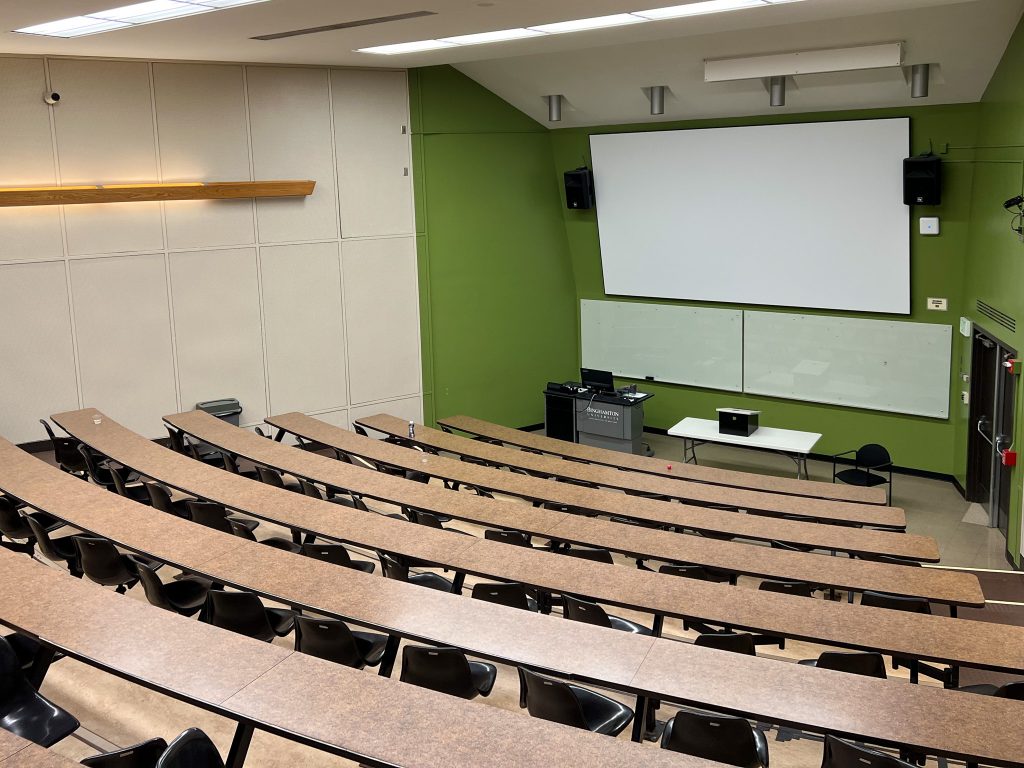
The meeting locations and minutes of the Student Association (SA) Congress have not been posted publicly in months.
According to the SA Constitution, under Article II, Section E, all meetings are required to be open for public attendance. Additionally, in the “Congress Minutes & Legislation” section of their website, the SA states that minutes and legislation will be posted by the “third regular meeting” after the meeting they are initially from. However, meeting places have consistently not been publicized throughout the entirety of this year, and the latter half of the fall semester’s minutes were only uploaded to the SA website last week.
Last year, the SA had its meeting location, Lecture Hall 9, listed on the main page of its website, but this year that location is not listed — and neither is its new location, Lecture Hall 7, which Congress had switched to partially through the fall semester.
Nia Johnson, the president of the SA and a senior majoring in human development, explained that she does not believe this lack of transparency between the SA and the student body was intentional, though she agreed that there has been an overall lack of communication.
“[Neither] Congress, nor the Executive Board, goes out of their way to keep our meeting locations private,” Johnson wrote in an email. “When students approach me I gladly tell them ‘Congress is on Tuesday ([with the] specific date) at 7 p.m. in Lecture Hall 7,’ and invite them to join Congress as well. Our speaker also ends each meeting with, ‘Invite your friends and peers to Congress,’ so I do think the bottom line is that we rely too much on word of mouth. I do believe though that we as an organization can do better with broadcasting when Congress is meeting and using our resources such as ‘SA Line’ to let students know.”
Minutes are taken at every single meeting by a minute taker, Johnson proceeded to clarify. However, she added that the person who updates the SA website will only do it at the “discretion of the page owner.” As the SA president, it is her duty to ensure that throughout each semester the office hours of the E-Board and staff members in charge of each office is submitted to the staff member so that they can be updated on the website.
Johnson explained why the process behind posting meeting minutes may periodically fail.
“The same goes for the speaker of Congress — it is their duty to send the meeting minutes to our staff member in order for the website to be updated,” Johnson wrote. “If none of this is done, the staff member cannot update the website, seeing how it is not their top priority since they have tens of other tasks they must complete in order for the SA to support, not only the students but the company as well.”
SA meeting locations and times will begin to be sent out via SA Line as well as through the SA’s Instagram story when Congress is gathering, Johnson wrote.
Johnson described why she believes that transparency as a whole between a student body government and the student body themselves is important for the Binghamton University community.
“Transparency is key in order for there to be a strong sense of trust among students on campus,” Johnson wrote. “It is best to allow students to know the information if they can rather than keep it a secret and leave students wondering.”
As stated by the SA Constitution, Article II, Section F, not only are students allowed to attend public sessions, but they are also allowed to make public comments. Amari Pavati, a freshman majoring in classics, Greek and Latin, explained his thoughts about the need for transparency between the SA and BU students.
“For clubs, SA is the decision maker for funding so transparency holds them accountable,” Pavati said. “For everyone else, they’re elected officials chosen by the student body, so they have a responsibility to be transparent.”
Jo Keenan, a freshman majoring in integrative neuroscience, expressed their opinion on why the publicity of meetings can be helpful.
“I think this is important for the same reason why transparency between any government and the body its governing is important,” Keenan said. “It’s important to know you are being accurately and fairly represented and that what you want is what the people who are representing you are advocating for.”


